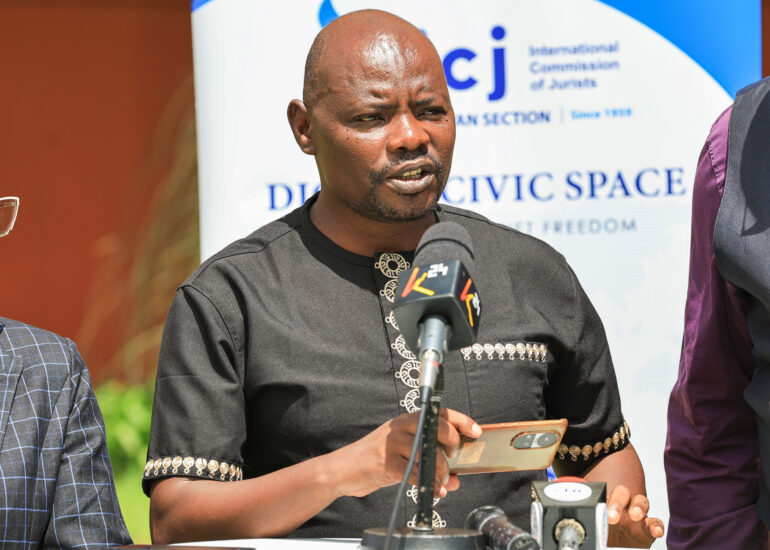Seven organizations have today filed a landmark public interest case challenging the unlawful disruption of internet access in Kenya. The organizations are: The International Commission of Jurists, Kenya Section (ICJ Kenya), The Bloggers Association of Kenya (BAKE), Paradigm Initiative (PIN), Kenya Union of Journalists (KUJ), Katiba Institute, The Law Society of Kenya (LSK) and The Collaboration on International ICT Policy for East and Southern Africa (CIPESA).
After the case was filed, High Court Justice Bahati Mwamuye issued orders stopping all the parties that have been sued from interfering with internet access until the case is heard and determined. This order safeguards Kenyans from arbitrary shutdowns and restrictions until the case is heard and determined. The seven organizations have sued The Communications Authority of Kenya (CA), The Attorney General, The Cabinet Secretary of Information, Communications and the Digital Economy, Safaricom and Airtel Kenya.
This legal action responds to credible evidence of deliberate interference, including internet throttling and the blocking of Social Media platform, Telegram, during the 2023 #RejectFinanceBill protests and the 2024 Kenya Certificate of Secondary Education (KCSE) Examinations. The evidence of the Internet disruptions, for the case, was provided by Cloudflare, IODA and The Open Observatory of Network Interference (OONI).
The restriction of access to the Internet in Kenya on three (3) occasions in 2023 and 2024, constitute a blatant violation of Kenyans’ constitutional rights to freedom of expression (Article 33), media freedom (Article 34), access to information (Article 35), and the full realization of economic and social rights in an increasingly digital society.
“As organisations committed to defending civic freedoms, we condemn the escalating use of digital repression to silence dissent, manipulate information flows, and erode democratic participation. Kenya’s obligations under the African Charter on Human and Peoples’ Rights and the International Covenant on Civil and Political Rights further reinforce the imperative to protect digital rights” said Eric Mukoya, Executive Director, The Kenyan Section of International Commission of Jurists (ICJ Kenya).
The internet is no longer a luxury but a critical enabler of political discourse, economic transactions, and even emergency response systems. Any restrictions must satisfy stringent legal tests under Article 24 of the Constitution which are legality, necessity and proportionality – standards systematically ignored in Kenya’s recurrent, arbitrary disruptions.
Through this case, the seven organizations seek a judicial declaration that internet shutdowns without due process are unconstitutional abuses of state power, alongside court-ordered mechanisms to ensure judicial oversight, transparency and accountability in digital governance.
“The outcome of this case will have far-reaching implications for millions of Kenyans who rely on unimpeded connectivity for livelihoods, education, and civic engagement. We call upon civil society, media partners, and the international community to amplify this crucial fight for digital rights as a cornerstone of Kenya’s democratic future” said Kennedy Kachwanya, Chairperson, Bloggers Association of Kenya (BAKE).
Signed,
The International Commission of Jurists, Kenya Section (ICJ Kenya)
Bloggers Association of Kenya (BAKE)
Paradigm Initiative (PIN)
Kenya Union of Journalists (KUJ)
Katiba Institute
Law Society of Kenya (LSK)
The Collaboration on International ICT Policy for East and Southern Africa (CIPESA)
